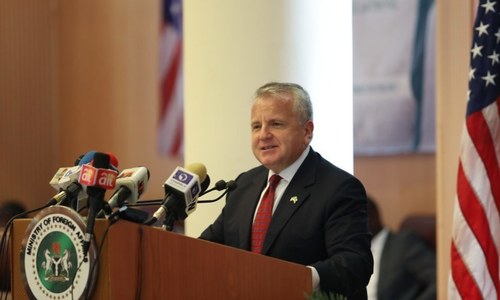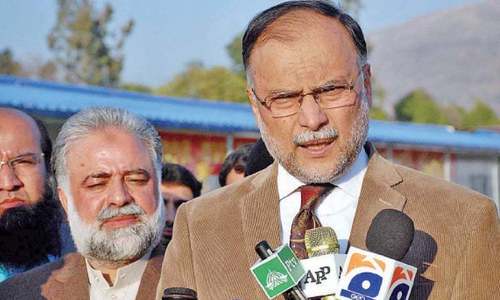A month after the United States (US) suspended military aid to Pakistan, Foreign Minister Khawaja Asif said Washington must pay for the fencing of Pak-Afghan border.
In an interview with Bloomberg published on Thursday, Asif said the fencing of Pak-Afghan border "won't cost [the US] much".
"The war [in Afganistan] is costing them much more," he was quoted as saying.
Pakistan Army undertook the arduous task of fencing the Pak-Afghan border — considered as the most porous borders — last year. The government argues that border fencing is necessary to stop the illegal influx of visitors from the other country that might also include militants.
Explaining the importance of securing the porous border shared by Pakistan and Afghanistan, Asif told Bloomberg that the fencing will put a stop on the entry of militants that come under the guise of refugees.
He also defended the repatriation of two million Afghan refugees saying it was crucial for establishing peace in the region because refugee camps were breeding grounds for militants.
Asif disclosed that almost 600,000 refuges, that had been sent back to Afghanistan, had returned to Pakistan. He called on the US and the rest of the world community to help Pakistan in hosting such a large number of refugees and in making Afghanistan safe for those returning.
The foreign minister insisted that a fenced border was in the "mutual interest" of both Pakistan and Afghanistan.
“Any free movement from their side to our side, or our side to their side, can breed mistrust and obviously some terrorist activity on our side or on their soil,” he said.
He claimed that as many as 700,000 people were crossing the border unchecked each day which posed a risk to both countries.
"These issues are facilitating terrorism," he said.
Despite Afghanistan's allegations that Pakistan shelters militant organisations, the latter's decision to build a fence across the Pak-Afghan border have met with criticism.































